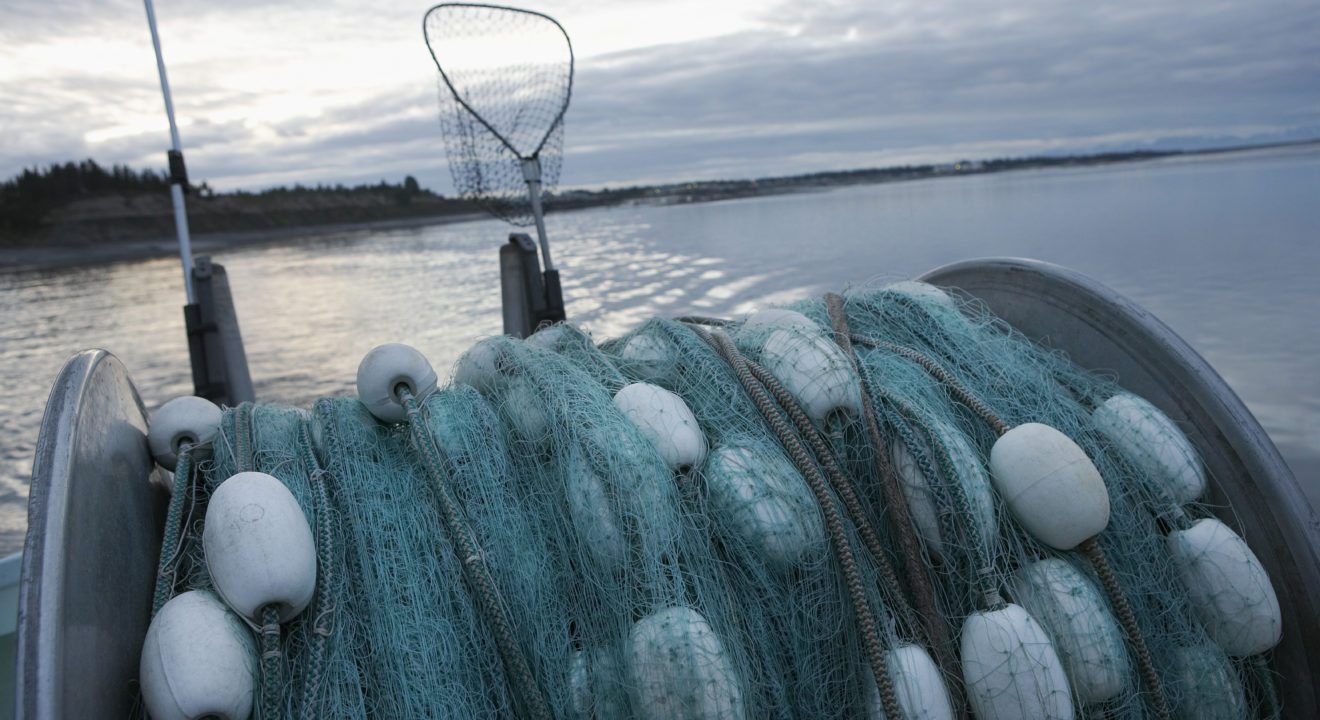Sustainability November 26, 2016


You are in a dimly-lit restaurant, expectantly sitting at a table with your napkin draped over your lap. From the kitchen, you can smell the delicious aroma of sautéing onions as you hear the loud clamoring of dishes. After what seems to be forever, you spot your waiter from the corner of your eye, gracefully toting your dinner. He sets a delicious cut of fresh salmon before you, wishing you a good meal. You hold your utensils in your hand and are ready to begin eating, but wait – do you know where your dinner came from?
According to World Wildlife, the United States is one of the “largest seafood markets for imported seafood – importing more than 5.3 billion pounds of seafood per year – worth almost $18 billion annually.” Unfortunately, much of the seafood we consume is illegally caught. According to Triple Pundit, Oceana reports that illegal, unregulated and unreported (IUU) fishing “accounts for 20 percent (11 to 25 million metric tons of fish) of the global catch.”
The Pew Trusts website explains that IUU fishing “includes all fishing that breaks fisheries laws or occurs outside the reach of fisheries laws and regulations.” A big part of IUU fishing is illegal fishing, which refers to “fishing without a license, fishing in closed areas, fishing with prohibited gear, fishing over a quota or the fishing of prohibited species.” Fishing rules are in place for a reason, and breaking them can affect more than just the animals that get caught. IUU fishing, according to NOAA Fisheries, also “poses a direct threat to food security and socio-economic stability in many parts of the world.” Here are some of these threats.
READ MORE: Is Human Noise Hurting Ocean Creatures?
According to NOAA Fisheries, companies that engage in IUU fishing often cut corners and lower their operating costs by avoiding overhead costs such as licenses. Companies cheat by illegally catching fish, spending less money than the companies who abide by the law. As a result, anything illegally obtained provides unfair competition. Illegal fishers, as Pew Trusts writes, “fish without the constraints accepted by legal fishers, often falsify documentation and effectively ‘launder’ their ill-gotten catch.”
Although it is difficult to accurately quantify the full economic impacts of IUU fishing, experts for Pew Trusts report that illegal and unreported fishing costs the global economy around $23 billion a year. Additionally, IUU fishing steals from smaller-scale fishers by taking the fish in near-shore waters and undermining the ecosystem on which the fish depend.
READ MORE: The Surprising Facts Behind a Truly Sustainable Diet
Because illegal fishing is a key driver of overfishing, IUU fishing threatens various marine ecosystems, including the Coastal East Africa, the Coral Triangle, the Gulf of California, the Mesoamerican Reef and the Galápagos. Various organizations are, for example, trying to improve the methods of catching tuna. According to World Wildlife, tuna is an integral part to the ecosystem because it is a large part of millions of marine animals’ diets; overfishing something as vital as tuna can cause a serious imbalance and threaten sharks, seabirds and sea turtles.
According to Pew Trusts, illegal fishing “compromises transnational security because many illegal fishers engage in other illicit activity.” According to the United Nations Office on Drugs and Crime, illegal fishing sometimes “involve human rights abuses.” For instance, some vessel owners use crew as “bonded labor” and force people to work in dangerous conditions for long periods at a time. These workers have few rights and little reward for their hard work. Additionally, illegal fishing also leads to tax evasion, money laundering and trafficking of drugs, arms and sometimes people.
READ MORE: Snakeskin: Cool or Cruel?
When asked about illegal fishing, Oceana’s campaign director Beth Lowell said, “Illegal fishing cheats seafood consumers and hurts honest fishermen and businesses that play by the rules.” So far, Congress has introduced several bills to address IUU fishing, including the Safety and Fraud Enforcement for Seafood (SAFE) Act, the International Fisheries Stewardship and Enforcement Act and the Pirate Fishing Elimination Act.
But as World Wildlife writes, “Illegal fishing is a global issue that affects everyone along the supply chain,” including you. Congress can only do so much to help prevent the illegal activity that is very difficult to detect. So other organizations such as World Wildlife are working with “many stakeholders, from fishers to business to governments, to help move the fisheries marketplace to stop illegal fish from entering the US and move towards a fully traceable seafood supply chain.”
To help, you can join their efforts by joining World Wildlife’s Action Center.